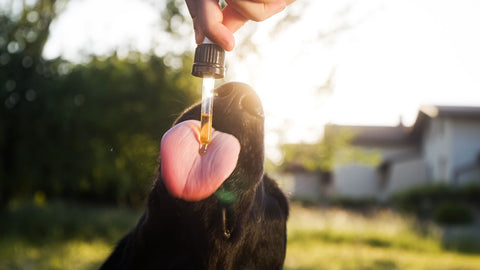

As summer ends and kids go back to school, many pets are left feeling confused and lonely. The lively days of playing and getting attention turn into quiet, empty homes, leaving our furry friends to adjust to a new routine. While pets, especially dogs, are known for their adaptability, the back-to-school transition can bring on a bit of the "blues." Here’s how you can help ease this seasonal change for your four-legged family members.
Recognizing Signs of Back-to-School Blues
Pets, like people, can show changes in behavior when their routine changes. Here are some common signs that your pet might be experiencing separation anxiety or stress because of back-to-school time:
- Excessive vocalization: meowing, barking, whining, or howling
- Destructive behavior (chewing furniture or household items)
- Accidents inside the house, even if previously house-trained
- Loss of appetite or changes in eating habits
- Tiredness or sleeping more than usual
If your pet is showing any of these signs, don't worry! A few simple changes can help them adjust to the new routine easily.
Create a Consistent Routine
Just like kids feel good with a routine, pets do too. A regular daily schedule helps them feel safe and knows what might happen next. Try to keep the same feeding times, walks, and play sessions.
Tips for establishing a routine:
- Morning activity: Before leaving for the day, spend some quality time with your pet. A quick walk or a game of fetch works well.
- Scheduled meals: Keep feeding times consistent, even if the kids aren’t home.
- Afternoon enrichment: Use an interactive toy or treat dispenser to entertain your pet while they are alone.
articlebanners1
Give Them Plenty of Mental Stimulation
A bored pet is more likely to act out. Providing mental stimulation throughout the day can keep your pet occupied and reduce anxiety.
Enrichment ideas include:
- Puzzle feeders or toys that give treats
- Rotating different toys to keep it fun
- Teaching new tricks or commands to challenge their brain
- Playing scent games or hide-and-seek games
Easing Separation Anxiety
Separation worries can happen when pets rely too much on having family around. If your pet has a hard time when the house is empty, you can help by slowly getting them used to it.
Strategies for reducing separation anxiety:
- Short departures: Begin by leaving your pet alone for a little while and then slowly increase the time.
- Comfort items: Give them a blanket or shirt that smells like you to help them feel better.
- Background noise: Play calming music or white noise to create a sense of family presence.
articlebanners2
Consider Calming Supplements
If your pet seems nervous, calming aids can help a lot. Natural products like Prana Pets’ Nervous System Support, Melatonin for Dogs or CBD Oil for pets provide a gentle way to feel better. They do this without using strong medicines.
Calming supplement options:
- CBD Oil: Helps lower stress and increase feelings of relaxation.
- Nervous System Support: A mix of natural herbs to help your pets feel calm.
- Melatonin for Dogs: Regulates sleep cycles and helps reduce stress.
Extra Cuddles Never Hurt
At the end of the day, pets miss their family and crave companionship. When you and your kids are home, make time for extra cuddles, playtime, and attention to reassure them that they’re still loved and an important part of the pack.
Final Thoughts
Transitioning from summer fun to back-to-school routines can be hard on our pets, but with a little planning, consistency, and care, you can help them adjust smoothly. By keeping them mentally stimulated, providing comfort, and establishing a steady routine, your furry friend will soon settle into the new rhythm of the season.
Don't let your pet feel like a lone wolf—help them find their groove and keep those tails wagging all school year long!
articlebanners3




